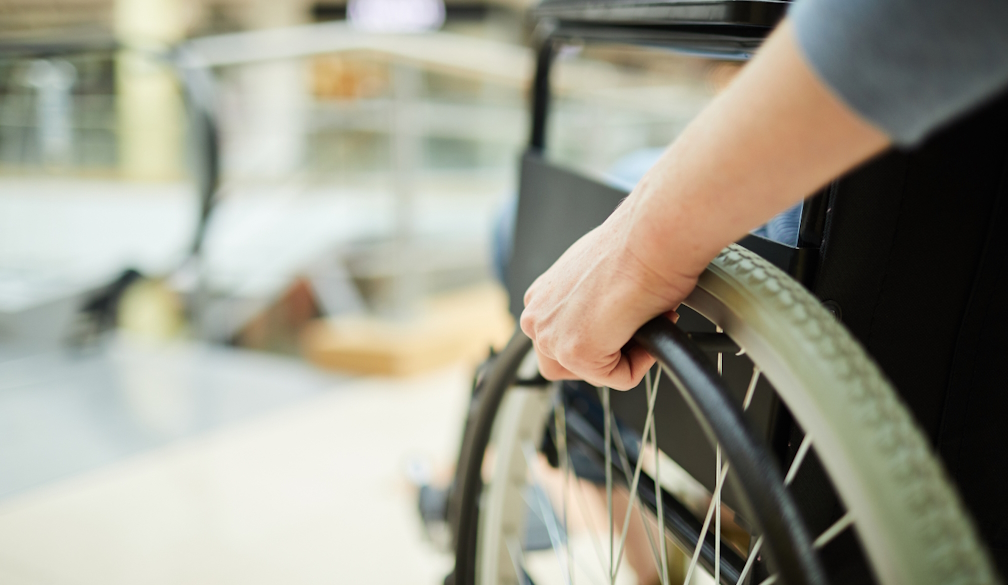People with disability know bodies can be funny – so it’s OK that you’re laughing at the Paralympics TikTok account
- Written by Shane Clifton, Associate Professor of Practice, School of Health Sciences and the Centre for Disability Research and Policy, University of Sydney

Our bodies are delightfully ridiculous.
When God created humanity, they knew our short lives would be full of pain, hardship and horror. So they created our bodies absurdly – clumsy, squidgy and bouncy, messy and noisy, with weird dangling protuberances – so we could laugh our way through challenges and crises and find the moments of joy and beauty that make it all worthwhile.
Rowan Atkinson’s face is their comedic masterpiece, but we all have bodies designed for comedy.
This is especially true for those of us with disability.
I have quadriplegia, and my body – which has a life of its own – is a jester. It makes fart noises during serious meetings; it spasms and kicks at unwary helpers; it leaks so disturbingly you can but laugh; its capacity to fall asleep in strange places provides my family with a stream of photos they share with glee.
The genius TikTok account for the Paralympics melds memes and trending audio to draw on the comedic beauty of physically disabled bodies.
The comedic genius of @Paralympics
My descriptions can’t do it justice, but by way of example, in a reel of comedic gold[1], blind American triathlete Brad Snyder waves his hands in the air like a pianist, fruitlessly “looking” for his helmet while Beethoven plays in the background.
In another[2], we have a clip of German wheelchair basketball Mareike Miller shooting a three-point hoop, followed by a clip of her clumsily rolling over the basketball and falling on her arse.
In one clip[3], one-legged Australian cyclist Darren Hicks races to the finish line, while a voiceover sensually repeats the phrase, “excuse me, I’m going to make a left, left, left”.
It’s hilarious.
But you can’t laugh at disability, can you?
Who tells the joke makes a difference
In a previous article[4] for The Conversation, Jemma Clifton and I took Dave Chappelle to task for that very thing.
In his latest Netflix special, Chappelle told jokes about disabled people’s walking and sexual function.
You might ask: what’s the difference between Chappelle’s jokes and those of the Paralympics TikTok account? Both draw comedy from disabled bodies.
Indeed, the line between appropriate and inappropriate comedy is subtle[5]. But while the difference may be subtle, it is not unimportant.
Chappelle mocks and demeans disabled people, “punching down”, while the Paralympics TikTok account humanises them.
Who it is who tells the joke makes a difference. Disabled people lead the Paralympics movement, and a former Paralympian[6] is in charge of the TikTok account.
The mantra of the disability rights movement is “nothing about us without us[7]”. This recognises it is not well-meaning charities, professionals and politicians who know best, but people with disability know best what services and support they need.
This applies to comedy, too.
People with disability know disability can be funny and are the first to laugh at the weirdness of their daily lives. They use laughter to cope with difficulty, pain, lack of privacy, ableism and social exclusion.
They also know best which jokes are dehumanising, which mock and belittle them, and which reflect ableist stereotypes and assumptions.
Not a hint of inspiration from pity
While well-informed non-disabled people can distinguish dehumanising from life-promoting jokes about disability, it also makes a difference when people joke about themselves.
It’s appropriate for me to yarn about my disability and the strangeness of my body. When I do so, I give permission for outsiders to laugh.
I hope the Paralympics TikTok account has sought consent from the athletes they use in their promotions. Several featured athletes have confirmed their support[8], saying they don’t feel mocked and believe humour can help normalise the disabled difference.
It is a relief to see a promotion of the Paralympics that avoids the usual stereotypes.
Inspiration porn is a too-common disability trope, and it inevitably shapes mainstream media coverage of the Paralympic games.
Australian comedian and journalist Stella Young spoke of[9] inspiration porn as objectifying people with disability for the benefit of non-disabled people.
Inspiration porn relies on pity and assumptions about the horror and impossibility of disabled life to motivate non-disabled people. It uses images of disabled athletes for inspirational quotes[10], such as “the only disability in life is a bad attitude”, or “your excuse is invalid”.
Mainstream media too often falls into this trap, not realising labelling disabled athletes as inspiring “because they run with disability” is a backhanded declaration of the disabled difference.
When the Paralympics account shows[11] Tunisian athlete Reja Jebali slapping her face and screaming to motivate herself before throwing the shot put (with an overlaid soundtrack: “Now somebody, anybody, everybody scream … there’s squirrels in my pants!”), there is not a hint of inspiration from pity.
Instead, we laugh with joy as we admire the determination and strength of an athlete who just happens to be disabled.
References
- ^ reel of comedic gold (www.tiktok.com)
- ^ In another (www.tiktok.com)
- ^ In one clip (www.tiktok.com)
- ^ previous article (theconversation.com)
- ^ is subtle (www.vox.com)
- ^ former Paralympian (www.npr.org)
- ^ nothing about us without us (www.un.org)
- ^ confirmed their support (www.npr.org)
- ^ spoke of (www.ted.com)
- ^ inspirational quotes (www.abc.net.au)
- ^ shows (www.tiktok.com)

















